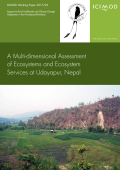
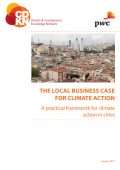
Cities are responsible for up to 70% of global greenhouse gas emissions, therefore climate change needs to be resolved in cities. There is an important window of opportunity to help cities, especially in rapidly urbanising developing countries, to better manage their future growth and development.
This working paper identifies five levers of effective climate action in cities that climate change practitioners should be aware of, and where appropriate, build into their project approach to support more effective climate action in cities. The five levers are:
- Power and leadership
- Communications and engagement
- Capacity building
- Financing implementation
- Demonstration effect
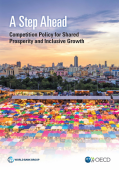
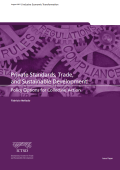
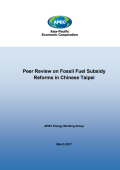
In 2013, Asia-Pacific Economic Cooperation (APEC) Leaders agreed to build regional capacity to assist APEC economies in rationalizing and phasing out inefficient fossil fuel subsidies that encourage wasteful consumption, while recognizing the importance of providing those in need with essential energy services. As part of such capacity building, APEC set up a Voluntary Peer Review (VPR) process to support APEC economies’ progress toward the group’s shared goal of phasing out inefficient fossil fuel subsidies that encourage wasteful consumption.
Chinese Taipei has participated in the fossil fuel subsidy reform peer review process led by the APEC Energy Working Group (EWG) in 2016, and is the fourth volunteer member economy to do so since 2014, following Peru (in 2014), New Zealand (2015), and the Philippines (2015). This peer review report is the culmination of the activities conducted under the APEC EWG. The report provides useful information on the Chinese Taipei economy and energy use, as well as descriptions of the subsidies chosen for the peer review process and the panel’s findings and recommendations on potential inefficiencies for these subsidies.
